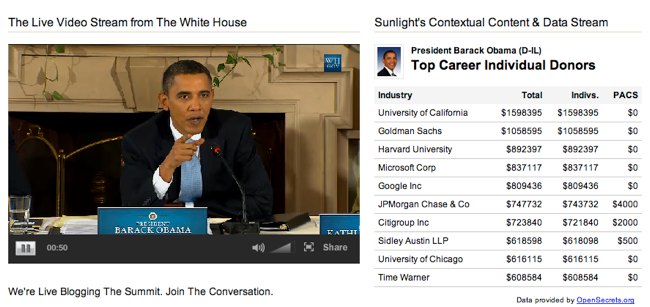
Poland’s Embassy in Prague; June, 2009. The banner celebrates the 20th anniversary of the Wall coming down.
Many links on the tragic plane crash in Smolensk. Clusty Search: Katyn film and Solidarity Poland.
Category: History
The Europe roundup: Iceland, from the financial crisis to open data
Iceland | From the financial crisis to open data
In 2008 in Iceland the financial system imploded. “Not surprisingly, this has led to a demand for more transparency, more access to public data and more effective communication by the government. All of a sudden Open Data is seen as a high priority among various lobby groups, branches of government and in restoration planning” says Hjalmar Gislason, an open data activist and member of the Open Knowledge Foundation’s Working Group on EU Open Data. In a long and detailed post, Gislason explains how this is not just part of the “momentum” open data is gaining in Europe, but a further step in a path that started in late ’90s.
The Icelandic Modern Media Initiative and the presence of Wikileaks surely have a positive impact on the whole scenario and there is no doubt they will help boosting any future open data bill. The effects will be seen soon: “In December a rare cross-party parliamentary proposal (the first step in passing new legislation) was made, proposing a “default open” strategy for any public sector data. The Prime Minister’s Office has formed a committee that is to propose changes and improvements in legislation and suggest how to define the boundaries between data that is to be open and data that shall remain closed.”
Hiroshima, Nagasaki: You Are There. A talk by Seymour Abrahamson
Seymour Abrahamson spoke at a recent meeting of the Madison Literary Club.
17.9MB PDF Handout
Earthquake in Chile
At 3:34 am local time, today, February 27th, a devastating magnitude 8.8 earthquake struck Chile, one of the strongest earthquakes ever recorded. According to Chilean authorities, over 400 people are now known to have been killed. The earthquake also triggered a Tsunami which is right now propagating across the Pacific Ocean, due to arrive in Hawaii in hours (around 11:00 am local time). The severity of the Tsunami is still not known, but alerts are being issued across the Pacific. (Entry updated four times, now 45 photos total)
Fabulous: Health Care Video Stream with Campaign Contributions…

The Sunlight Foundation provides a great service here.
If Our Grandparents Could See Us Now
“The OECD rates Canada’s banks as the safest in the world – the United States comes in fortieth, two places behind Botswana.”
— From I.O.U., by John Lanchester
There’s always a pile of new books near my desk; currently, most of them deal with the history of the financial crisis. When time allows I open a couple more, read them and mark key points with highlighters for easier reference. It’s always gratifying to find a passage in which a well-regarded economics writer makes the same points I have in my work, but I like books even better when they teach me things I did not already know.
An example: Barry Rithholtz, a market commentator, put the total cost of the current bailout in terms that most anyone can understand. It is now more than the nation spent for “The Marshall Plan, the Louisiana Purchase, the Apollo moon landings (and all costs of NASA’s space flights), the Korean War, the Vietnam War, FDR’s New Deal, the Invasion of Iraq and the 1980s Savings and Loan Scandal, combined and adjusted for inflation.”
That statement alone should have the public up in arms, demanding smart actions that will make sure it never happens again.
The books I’ve been reading lately also cover the fundamental economic theories of both John Maynard Keynes and Milton Friedman. Keynes is known for promoting government deficit spending in hard times, while Friedman believes in deregulating and privatizing everything. What I now find interesting is that nobody carrying the banner of either of these two economic giants seems to get Keynes’ or Friedman’s fundamental economic viewpoints entirely right.
Why the Technology Sector Should Care About Google Books
Gary Reback @ TechCrunch:
Antitrust lawyer and Open Book Alliance leader Gary Reback has been called the “antitrust champion” and the “protector of the marketplace” by the National Law Journal, and has been at the forefront of many of the most important antitrust cases of the last three decades. He is one of the most vocal opponents of the Google Books settlement. I interviewed Reback a few months ago, and Google Books was one of the topics we discussed. In the column below, Reback discusses Google Books and its ties to Google search.
This Thursday leaders of the international publishing industry will watch with bated breath as a federal judge in New York hears arguments over whether to approve the Google Book Settlement.
More a complicated joint venture among Google and five big New York publishers than the resolution of pending litigation, the proposed settlement once promised unprecedented access to millions of out-of-print books through digital sales to consumers and online research subscriptions for libraries. But with the passage of time and the ability to examine the deal more closely, the promises proved illusory. The big publishers, as it turns out, have reserved the right to negotiate secret deals with Google for the books they claim through the settlement (pdf).
Meanwhile, torrents of outrage rained down on the New York court – from authors whose ownership rights will be appropriated through the settlement’s procedures, from librarians fearful of price exploitation by Google, from privacy advocates worried that Google will monitor the reading habits of library patrons, from libertarians incensed over the use of a legal procedure to effect the widespread appropriation of property, from digital booksellers concerned about Google’s unfair advantage in the marketplace.
Cham Ruins: My Son Panorama – Another View
This Cham Ruins panorama (click to view) was captured in My Son, Vietnam during the month of April, 2007 by Jim Zellmer
Another panoramic scene.
The Legacy of Billy Tauzin: The White House-PhRMA Deal
More than a million spectators gathered before the Capitol on a frosty January afternoon to witness the inauguration of Barack Obama, who promised in his campaign to change Washington’s mercenary culture of lobbyists, special interest influence and backroom deals. But within a few months of being sworn in, the President and his top aides were sitting down with leaders from the pharmaceutical industry to hash out a deal that they thought would make health care reform possible.
Over the following months, pharmaceutical industry lobbyists and executives met with top White House aides dozens of times to hammer out a deal that would secure industry support for the administration’s health care reform agenda in exchange for the White House abandoning key elements of the president’s promises to reform the pharmaceutical industry. They flooded Congress with campaign contributions, and hired dozens of former Capitol Hill insiders to push their case. How they did it—pieced together from news accounts, disclosure forms including lobbying reports and Federal Election Commission records, White House visitor logs and the schedule Sen. Max Baucus releases voluntarily—is a testament to how ingrained the grip of special interests remains in Washington.
Panorama – Cham Ruins: My Son, Vietnam
This Cham Ruins panorama (click to view) was captured in My Son, Vietnam during the month of April, 2007 by Jim Zellmer
Another panoramic scene.

